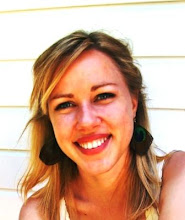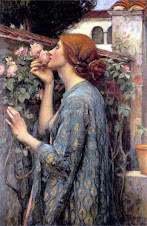Falls Church, Virginia
From Paul's first letter to the first-century church in Corinth
Love has a second sight, an uncluttered idea of the destiny of things, so she knows how to endure through trials, mishaps, setbacks, disappointments, betrayals, and unexplained delays.
Love remembers what ought not to be forgotten; Love speaks in gentles tones, and she extends courtesy to the stranger of low rank.
Love knows deep contentment with her own situation, knowing Who has selected it especially for her, and she would scorn the suggestion that she trade it for someone else's.
Love is secure behind the rampart of the King's city. Her neck and her arms are covered with the jewels He has given her as marks of His affection, and she knows He can scarcely stand to lose sight of her face. What need could she have for puffed up speech? She feels no need to convince herself or anyone else that she is precious, not when the evidence surrounds her.
Love knows who she is. In the brittleness of clay, in the short life of a summer's growth, she sees mirrored her frailty and her mortality, but she also knows beyond doubt that the King has set His heart on her. Did He not promise her that she would always live in His halls, when He inscribed her name on His own body? So knowing that she has been plucked from obscurity to a royal destiny, she does not plug her ears against words of correction, and she comes close without qualm to the poor and rejected, the objects of others' scorn and derision.
Love would never use the power of her tongue to knock someone down; she naturally senses and protects others' vulnerabilities, never thinking to exploit them to make herself look more important.
Love's first thought on rising does not begin with "I," and she does not become bitter when her own plans are thwarted.
Love entrusts her interests to Another; she is slow to her own defense, and she is the last to read malice into the actions of others. Love exiles old offenses from mind, always eager to begin again and heal a breach.
Love can't abide cruelty. She throws her lot in with the victims of wrongdoing, and she rebukes those who abuse power. When the truth comes out, her face aches with smiling, and when justice wins the day, she throws a party for everyone she knows.
Love always find a ways to keep going - always. Her works always yield a harvest, just as the planets keep to their orbits. It is part of the laws written into the unvierse that love's sweat cannot go to waste, though victory may tarry.
Love lends her claok to whoever is shivering, and her sword is polished for the defense of the weak.
Love possesses the infectious outlook that resists despair even unto the grave.
Love knows that though many deceive, the King has never lied. She is unshakeable in that confidence, and she makes her plans accordingly.
And when love has only enough light to take the next step, she always takes it.
Many are those who claim special insight into our times, and even some with reasonable knowledge about the Divine Plan. There are people who have mapped our spiritual genome, people whose faces and names are known to millions, and whose exegesis is without fault. But they are their accomplishments alike will lose their luster in the radiant crucible of the One King's presence. They will be shown for the half-measures they are, and we will turn as from the flicker of a candle to a blazing hearth. Three things withstand the test of time; three things retain their splendor even when seen in the broad daylight of full revelation. They are faith, hope, and love. But love is queen among her sisters.
All Clear!
-
Of all the memories, experiences and things I brought back from Uganda, I
have managed not to bring Malaria with me. I was so happy I had to share it
with ...
16 years ago





